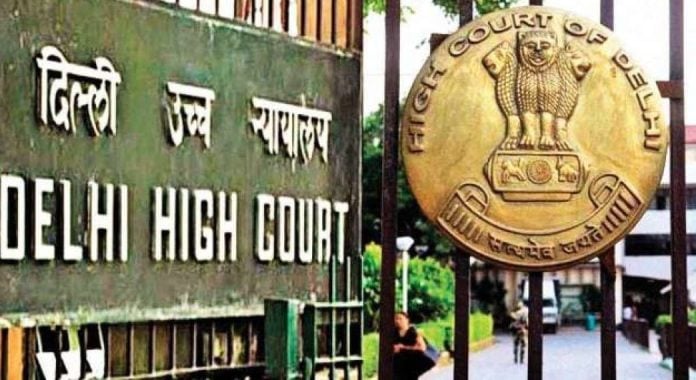The Delhi High Court has given the go-ahead to the first-come-first-served policy adopted by the Election Commission of India (ECI) for the allotment of free election symbols to unrecognised political parties.
The order was recently passed by the Bench of Acting Chief Justice Manmohan and Justice Manmeet Pritam Singh Arora.
The High Court rejected the petition filed by Naam Tamilar Katchi (NTK), a Tamil Nadu-based political party, which received a vote share of around 6.87 percent in the state elections of 2021.
The High Court observed that the provision of the Commission was consistent, non-discriminatory, and applied uniformly to all eligible applicants.
The Bench noted that accepting the petition would operate against the essence of ‘free symbols’, as it would take away the rights and benefits granted to the unrecognised political parties to contest the elections with a free and common symbol.
It further said that the petitioner, by the proposed re-phrasing, sought to retain an advantage for the registered unrecognized political parties to get continued access to a particular free symbol and therefore, indirectly converting a free symbol into a reserved symbol.
The petitioner party had approached the High Court seeking the striking down of Paragraph 10B(B), Explanation (iv), along with Provisos 1 and 2 to the said Explanation of the Election Symbols (Reservation and Allotment) Order, 1968.
Explanation (iv) provides that allotment of common symbols will be done on the first-come-first-served basis.
As per Proviso 1, if two or more parties apply for the same symbol on the same date, then the ECI will decide the allotment by draw of lots.
Proviso 2 said that if two or more political parties apply for the same symbol on the same date, and if one of the parties was allotted the symbol earlier, then that party will be allotted the symbol in question.
The petition by NTK further demanded the election symbol ‘Ganna Kisan,’ as had been done in previous elections.
The party argued that the phrase ‘same date’ in the provisos to Explanation (iv) should be replaced to permit equal consideration to all applications received by ECI within a given window period, together and not on a particular date.
The High Court ruled that the arguments would render Explanation (iv) otiose, and that it cannot rewrite a statute.
The Bench observed that the submission of the petitioner party ignored the repetitive occurrence of the phrase ‘same date’ as it appeared in each of the three Proviso(s) to the said Explanation (iv).
Besides, the consequence of alleged re-casting of the said Proviso(s) 1 and 2 as sought by the petitioner would render otiose the Explanation (iv) itself, which provided that the allotment would be made on the principle of ‘first-come-first-served’ basis.
The suggestion of the petitioner, if accepted would do violence to Explanation (iv), observed the High Court and upheld the allotment of the symbol ‘Ganna Kisan’ in favour of another political party.
The petitioner party was represented by Senior Advocate Haripriya Padhmanabhan, along with Advocates Priya R, Manoj Kumar, Shrutanjaya Bhardwaj and Omkar Hemanth.
Standing Counsel Ankit Agarwal and Advocate Ashish Shukla appeared for the Election Commission of India (ECI).


